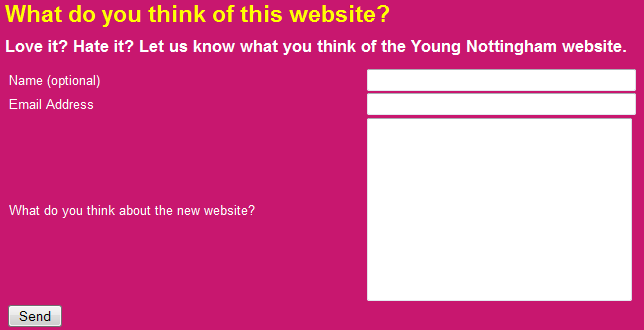Asking people what they think about your website can be a big mistake. Initially the opinions from the people you respect or from your customers appear to be really useful until you start to see that few people agree and most opinions contradict each other.
It is important to remember that getting people’s opinions do not reflect reality. Ultimately what people say they do, what they say they like or dislike, or what they say will influence them may not be true when they’re actually sat in front of a website using it to solve a problem. In our research with users, we’ve seen many people tell us they only use websites in a certain way, only to see them completely contradict themselves when they come to use a websites to complete a task. Often what influences us is not processed at a conscious level, so as humans we can be quite unreliable when predicting future behaviour or explaining our previous behaviour.
If you want to know how to improve your website there is no substitute for seeing real customers using your site. And when it comes to improving your website, focus on the logical factors rather than the emotive opinions.
There are of course times when you don’t ask for opinions but you receive feedback from friends, colleagues, customers, and peers. When you receive an opinion or comment about your site try not to engage with it emotionally, instead look at whether it is positive or negative and whether the opinion has valid reasons or justifications.
To help, use our categories below to determine what to do with any feedback you receive about your website:
Positive comment with no justification – This is the type of opinion you get from your Mum. They are saying nice things but it’s not anything meaningful to help you improve your website
Positive comment with good justification – This is useful. Think of what actions you have taken on the site to lead to this opinion and consider how you can maintain and transfer it to other areas of the site
Negative comment with good justification – This is useful. Think of what the likely causes are for this comment and investigate it further. If you receive similar comments over time start looking at your site analytics for possible trends and tell the person responsible for user experience to include this in the next usability test.
Negative comment with no justification – This is the type of comment you might get from someone who wants a reaction out of you. Typically this comes from a negative frame of mind and is unhelpful.
Opinions about your website are rarely helpful in helping you make improvements. When you do receive comments take time to strip them of their emotion and consider if they have real validity. Only when you have a number of comments highlighting a theme should you consider investigating further.
How do you deal with opinions about your website?


